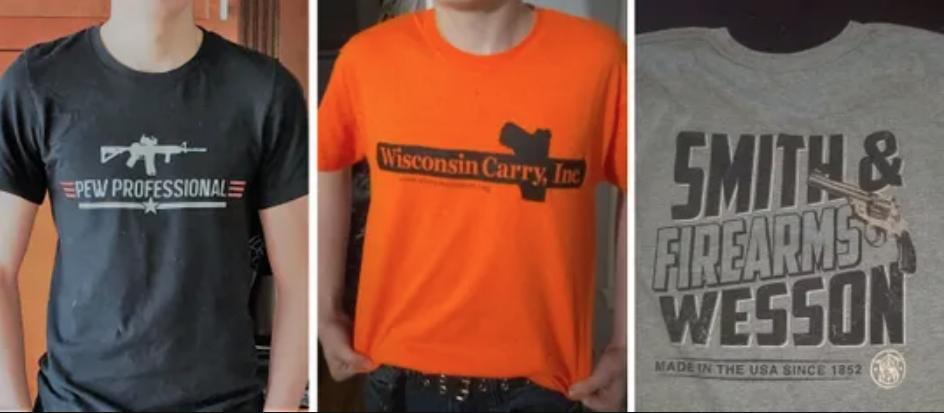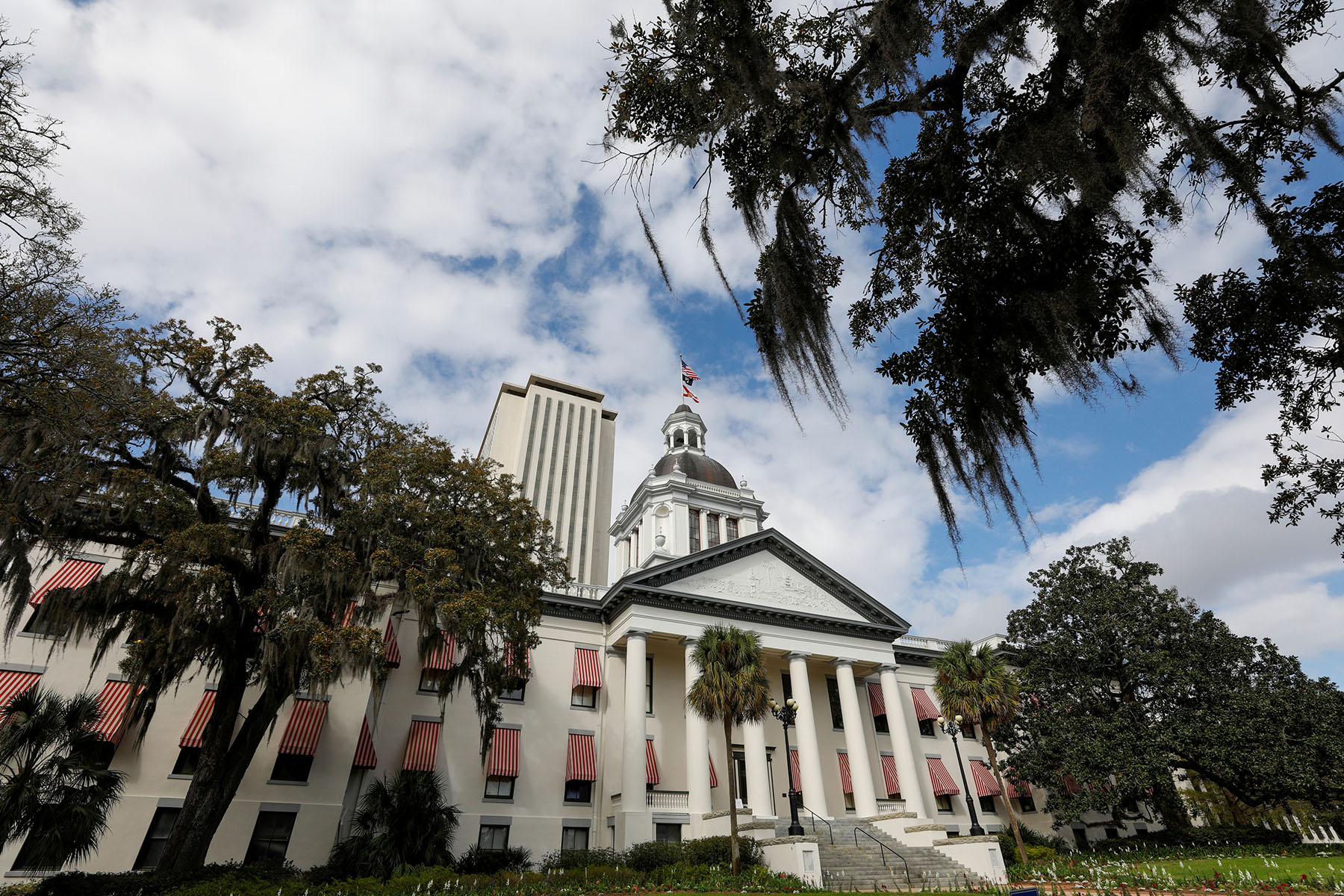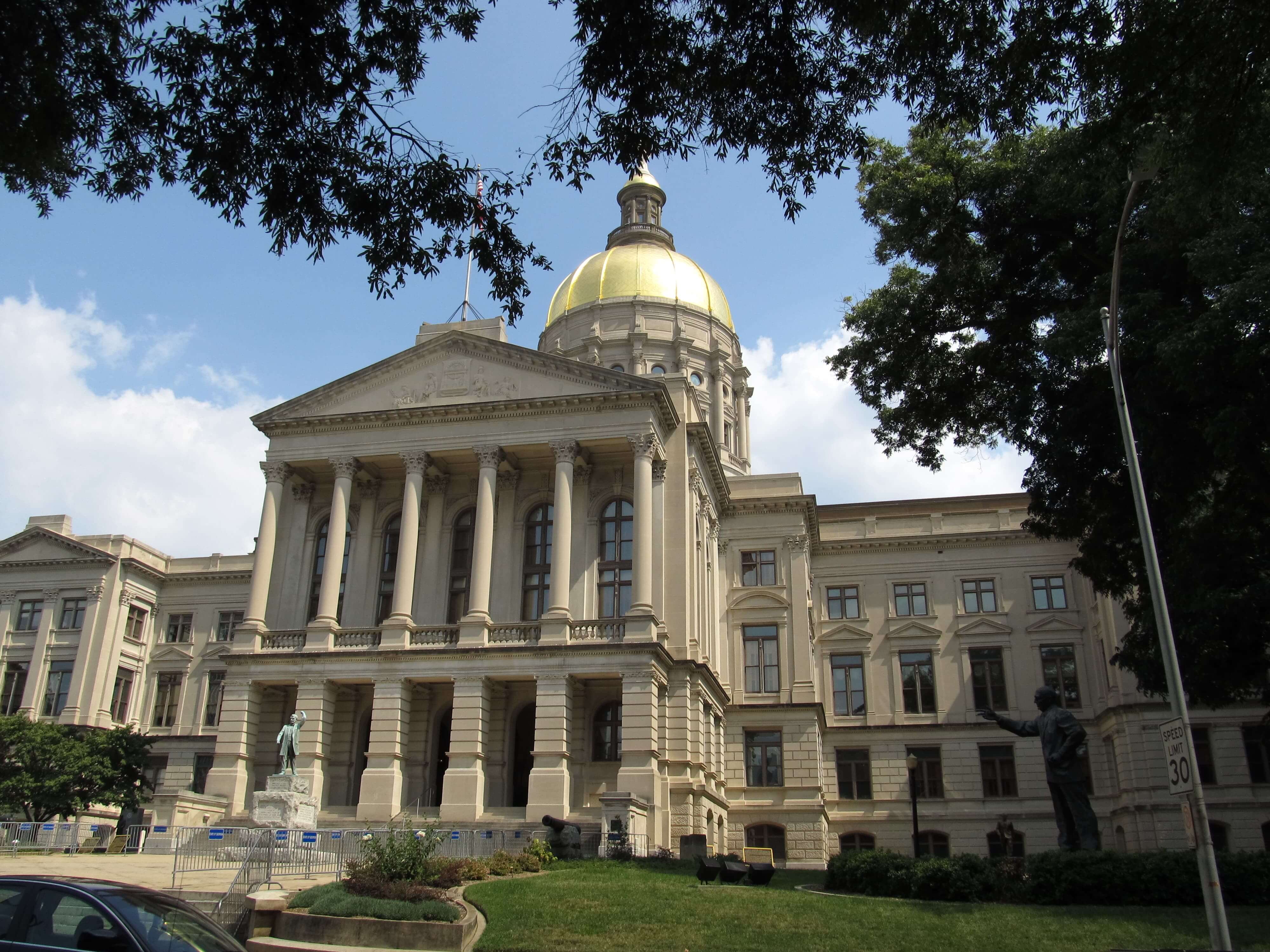A principal at a Wisconsin High School asked two sophomore students to cover up their T-shirts that had gun imagery, saying the shirts violated the school’s dress code which prohibits clothing with threatening, violent, and illegal messages. Now the students’ parents are suing, alleging the principal’s decision infringes on their children’s free speech rights.
Filed in the United States District Court for the Eastern District of Wisconsin, the lawsuit argues that the students’ shirts do not advocate for violent or illegal use of firearms, but are meant to express support for “the value to society of personal possession of arms as guaranteed by the Second Amendment.”
See also: Syracuse University Walks Back from Punishing Student Protesters
One of the shirts in question bears a handgun tucked behind the logo of a gun-rights advocacy group, as if in a gun holster. The other features a silhouette of an AR-15 style rifle above the words “Pew Professional” (“pew” as in the sound a firearm makes).
“By restricting Plaintiffs’ clothing based on their depiction of firearms in a non-violent, non-threatening manner, Defendant is violating Plaintiffs’ freedom of expression guaranteed by the First Amendment,” reads the complaint. The complaint also alleged that there had been no incidents of “significant disruption” in connection with the students’ T-shirts.
The lawsuit argues that while the principal has the power to regulate student dress, the current school’s code lacks objective criteria that students can use to determine what type of images are prohibited.
“By deciding on a case-by-case basis what clothing is ‘inappropriate,’ Defendant’s restrictions are unconstitutionally vague,” the suit says.
According to the Milwaukee Journal Sentinel, Wisconsin has had at least two other civil lawsuits filed by parents whose kids were told they couldn’t wear shirts with depictions of firearms. While one of the cases is ongoing, the other was decided in 2018 in favor of the student who had asked for a preliminary injunction barring the school principal from restricting shirts with images of firearms. The school eventually settled, and agreed not to restrict the student from wearing shirts with weapons so long as the image and/or message doesn’t advocate for violence.
High school and middle school administrators generally have greater power to regulate student speech than their college and university counterparts, including the ability to regulate expression they deem “offensively lewd and indecent” and speech that can “reasonably be regarded as encouraging illegal drug use.” See Bethel School District v. Fraser (1986) and Morse v. Frederick (2006).
When asked about the lawsuit, George Washington Law Professor Catherine J. Ross told First Amendment Watch that the student could have a strong case.
“[The principal] does not have the right to ban a shirt depicting a gun unless [she] meets the requirements of Tinker,” Ross said, referring to the standard established in Tinker v. Des Moines (1969), a landmark U.S. Supreme Court case requiring administrators to show with evidence that the expression has or will lead to material disruption.
However, Ross did say there existed a factor that could tip the case in the principal’s favor.
“If the school has a history of gun violence, it might meet Tinker’s standard,” Ross wrote in an email.
Tags




